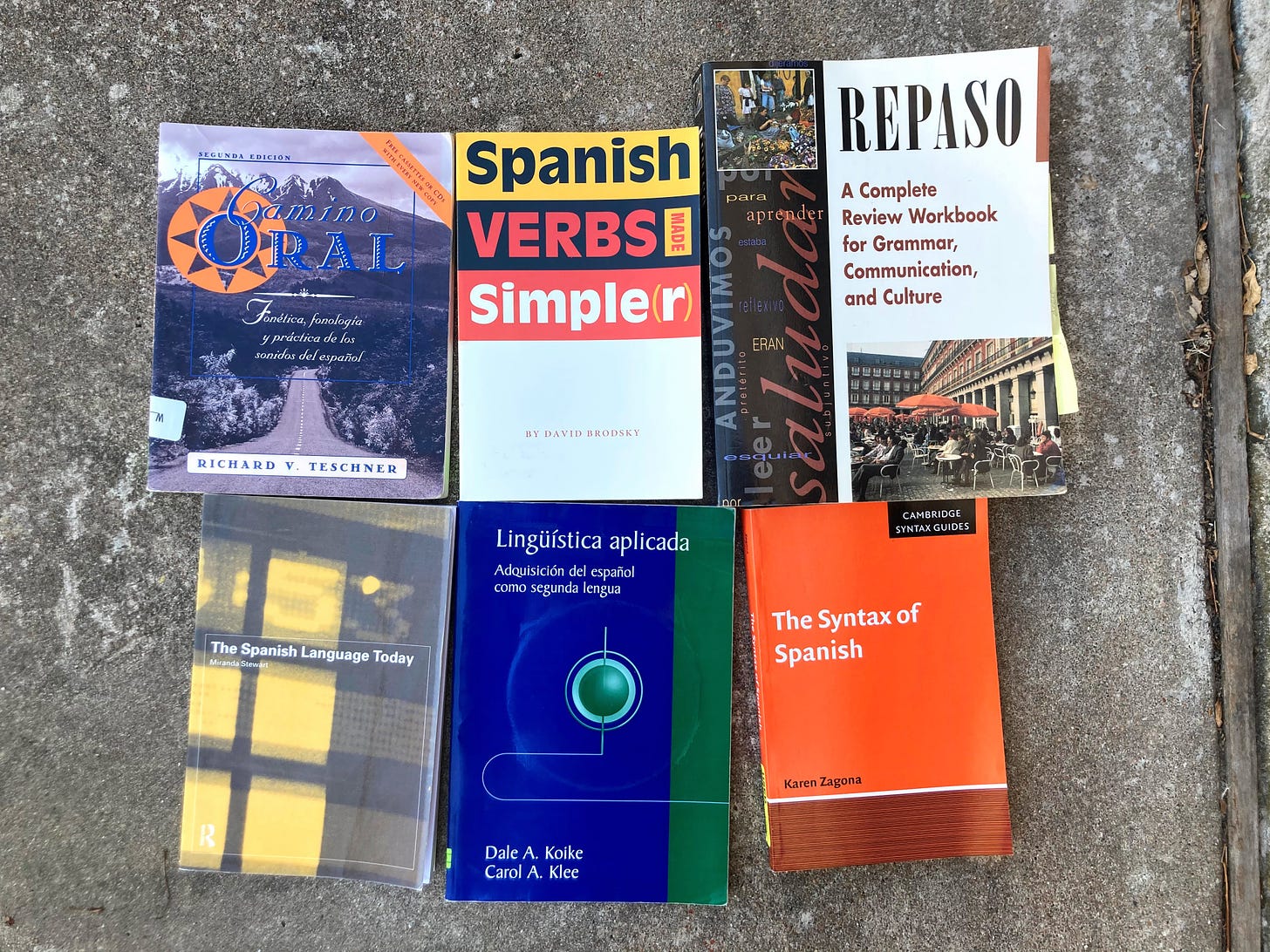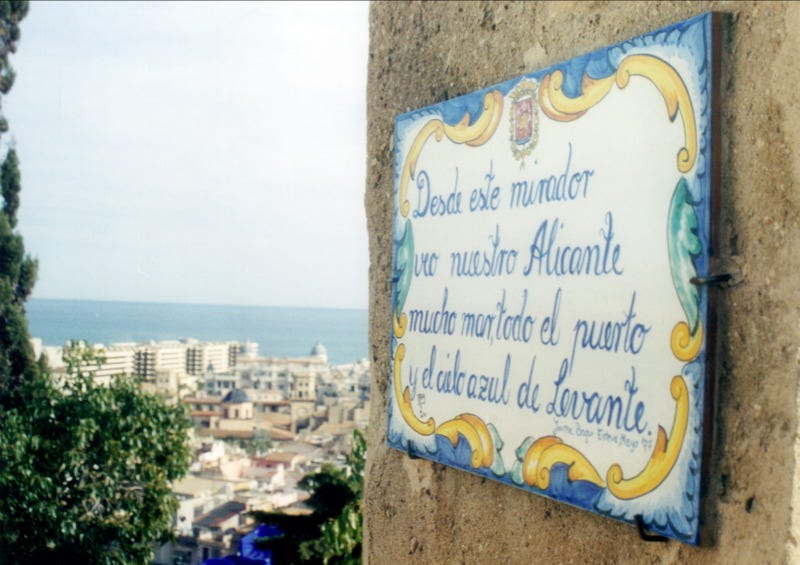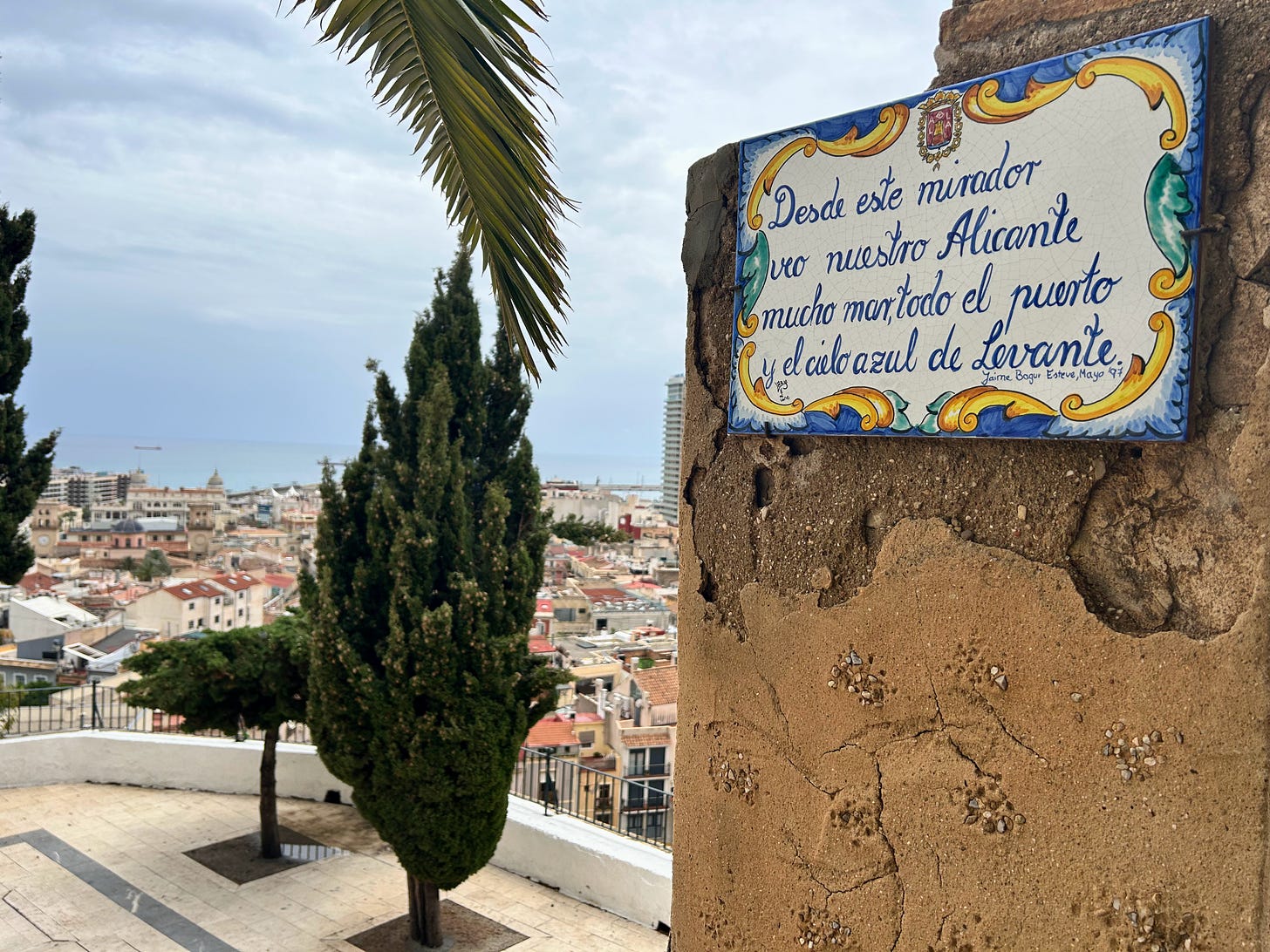Why learning a language is like raising a pet
What I told my kids when apathy about speaking Spanish set in.
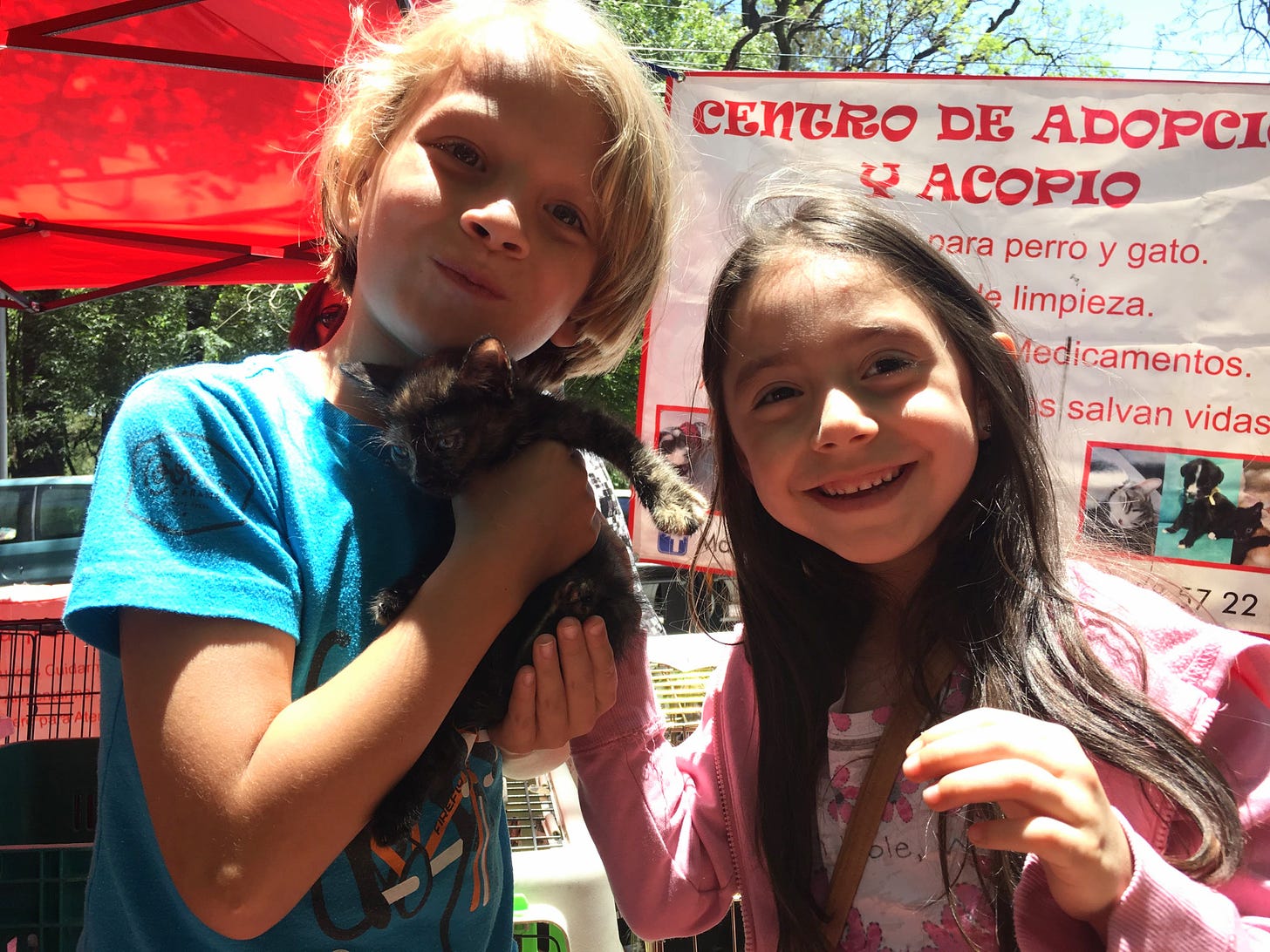
We’re down to our last week in Spain, and I’m recovering from an 8-hour day canyoning down a very cold river in a wetsuit.
But I have a cold vermouth at hand, and a few hours to kill between our very late lunch (5 p.m.) and what I imagine will be a very late dinner (10 p.m.).
And I wanted to share some thoughts about teaching — or trying to teach, rather — my kids a second language as a person who grew up knowing only one.
A little backstory: I didn’t start learning Spanish until I was 15. In high school, we had to take at least one semester of a second language, and I remember thinking, “Well, if half a billion people speak Spanish, that’s a whole lot of world I could explore if I learned it.”
We had a wonderful teacher, Mrs. Harmon, who still teaches Spanish at Aurora High School today. Her pedagogy was brilliant: She taught us like we were in kindergarten. We started with colors, numbers, cosas en la clase. (This is why I learned sacapuntas — pencil sharpener — within my first 50 words.)
We took simple quizzes with our non-dominant hand (because it would help rewire our brain), often writing in pencil on our desks.
After all, you have to break a few rules to learn new ones.
I can see now that learning Spanish was a subconscious way for me to get as far away from my hometown, as quickly as I could.
By my junior year of college, I was living in Alicante, still rewiring my brain.
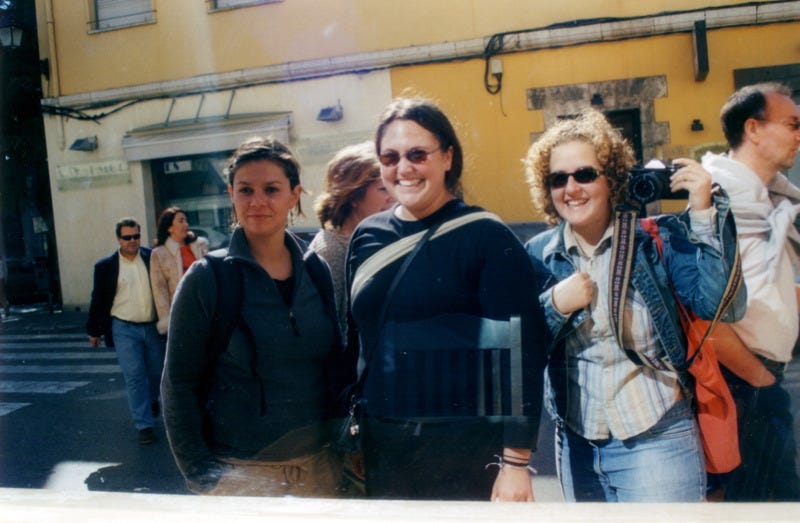
The rewiring continued when I became a parent the same year I thought I would head to South America for another year abroad. My sadness about this change of plans softened when I read books to Julian, translating each sentence to my little baby, whom I was convinced could become bilingual in a house with two native English-speaking parents.
Every day included as many words in Spanish as I could manage. Leche. Comida. Jarabe. Espera.
When I found out that the elementary school close to us offered a dual language program, I signed him up immediately. The first few years, he didn’t mind, but as time progressed, he started to get frustrated because he didn’t fully understand the language that still felt new. And I started to get tired fighting him about it.
But I remember being in the car one day when he was in fourth or fifth grade. Avery had just started school. I think they’d started to team up against me on all this language learning.
“Boys, learning a language is like raising a pet, and it’s your pet. If you don’t feed it and take care of it, it’s going to die. And I can’t raise it for you. I already have my own.”
That was a turning point that they remember to this day.

I kept speaking as much Spanish as I could with them. I talked them into taking a trip to Mexico City with me when Julian finished fifth grade. But I stopped quizzing them so much. I didn’t let them sit in misunderstanding in an attempt to “win” the language lesson of the day.
Fast forward five or six years. Here we are in Spain, and the idea that they have their own pet is still present. They are ordering at restaurants, asking for directions to the beach and somehow knowing the meaning of words without their exact translation.
It feels like un milagro that they are even still trying.
I am not sure whether they will stick with learning Spanish — or any other language, for that matter. Avery has been taking Japanese in his middle school. We have a family plan on Duolingo. (I don’t ask about their streak.)
But what I’m trying to show them is what learning another language, however imperfectly, can give you:
New conversations with strangers. A wider perspective about current events.
The ability to understand jokes that your friends are making, maybe at your expense. (This has become especially true now that Julian is at a predominately Hispanic high school.)
Slightly fewer problems getting from place to place.
A deeper appreciation about what it means to feel understood.
My own little pet is now 25 years old. I’ve been learning Spanish for longer than I haven’t been learning Spanish. I am more fluent than I give myself credit for, and I still feel like a novice.
It’s been a constant companion for so many years; I’ll never regret all the hours — and tears — I’ve spent keeping it alive.
Maybe all those lonely hours raising them with as much patience and creativity and enthusiasm as I could muster did, in fact, show them how they might raise something of their own.
Thank you so much for reading and subscribing! Don’t forget that May 31 is the deadline to become a paid subscriber so you can get the debut zine that I’m printing and mailing out in June.
Paid subscribers are what keep this Substack going, and it means so much that so many of you have signed up to support it. I can’t wait to see what’s next for The Feminist Kitchen, and I hope you’ll join us for the ride.
Hasta pronto,
Addie



